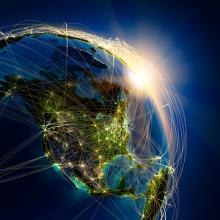reality

Let’s face it: we are an opinionated society.
We have entire television channels and radio stations dedicated to the propagation of one particular way of thinking. Some people like this channel because they are “more liberal” while others like this channel because they are “more conservative” and the rest of the world falls into the trap that we can be objective (read: ‘fair and balanced’).
We seek out opinions from everything from a new toaster to the new medical center in the area. We want to know people’s experiences about something before we waste our time, money and energy on a futile venture. If a product on Amazon has too many “one-star” reviews I am not going to purchase it. If my friends or family members have a bad experience at a restaurant or store then I will think twice about going there myself.
Sharing our opinions or perceptions is never easy. They can be met with great disdain or hostility. ESPN prides itself on these conflicts. Its marketing plan is to put four talking, opinionated heads in a room and ask a question that none of them can agree on like “Who is the greatest basketball player of all time?” or “Is Tom Brady overrated?”
Some of the greatest conflicts in the world’s history have been over difference of opinion. Governments have been shut down over difference of opinion. Trying to “change” someone’s opinion is hard if not impossible; for some people the “damage” is done and there is no turning back.
The church is not immune to this to this.

It often seems that just as we begin to get our heads around how we might understand our world, everything changes. There have been tipping points at various moments in history; events or advances which move us from one epoch to another in such a way that we can never see the world with the same eyes again. It happened during the Industrial Revolution; it happened with the Communications Revolution; and it happened on September 11, 2001.
And according to Ayesha and Parag Khanna, we are approaching (or indeed, have already reached) another of these defining moments—what they call “The Hybrid Age.” In their book, Hybrid Reality: Thriving in the Emerging Human-Technology Civilization, published as part of the TED Books series, they examine how we have reached this moment, and what that means for our futures, and for generations beyond our own.
Hybrid Reality, in a similar fashion to many of the e-books that have developed out of the popular series of talks, reads like a manifesto – and in this case, it is a manifesto for navigating the unknown, exciting, and at times, downright terrifying potential futures which we are opening ourselves up to as technology becomes more and more sophisticated and more and more a part of us.
| The Daily Show With Jon Stewart | Mon - Thurs 11p / 10c | |||
| Mexed Out | ||||
| ||||
How ironic that for all the protests going on about unemployment these days that a parallel debate is occurring in our agricultural sector: What to do about a shortage of workers to pick crops or care for livestock on U.S. farms.